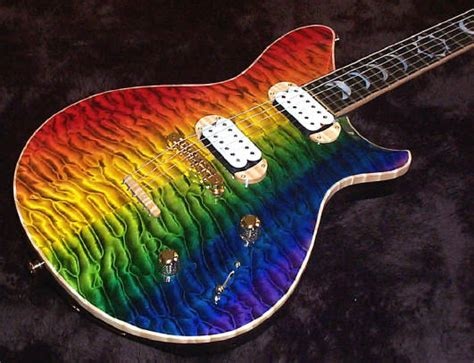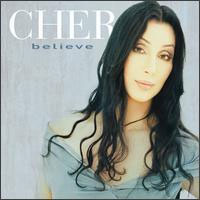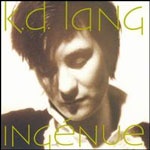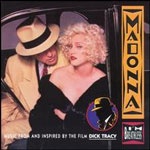Features
Peter Piatkowski's Pride Playlist (2024)
by Peter Piatkowski
 It feels like ever since 2016, every Pride feels more important than ever. With its roots in protest and rebellion, Pride is a time when the queer community pays tribute to the early pioneers who fought back against police brutality and oppression on that important June weekend in 1969. Though political, Pride is also a party, and in the queer community, music is an essential expression of freedom, liberation, and friendship.
It feels like ever since 2016, every Pride feels more important than ever. With its roots in protest and rebellion, Pride is a time when the queer community pays tribute to the early pioneers who fought back against police brutality and oppression on that important June weekend in 1969. Though political, Pride is also a party, and in the queer community, music is an essential expression of freedom, liberation, and friendship.
In the 1970s, disco was a place of refuge and safety for the queer community. The thumping, fast-paced music that pounded out from the dance floor provided euphoria, transcendence and respite from the uglier world outside the walls of the gay club.
In the 1980s, AIDS made a lasting and tragic impact, as the queer community focused their energies on Washington, demanding that President Ronald Reagan’s government do something about the disease, which was decimating gay populations throughout the world. The backlash dovetailed with the Culture Wars in the decade into the 1990s before unimaginable strides were made in the 2010s.
Below is a playlist for Pride this year. Some of these songs are silly disco tunes, slinky dance numbers, and soulful folk songs. It’s not a definitive list; these are just 50 of thousands of songs that score Pride.
50. Jose & Luis, “Queen’s English” (1993): Madonna’s backup dancers, Luis Camacho Xtravaganza and Jose Gutierez Xtravaganza, team up with DJ Junior Vasquez and their boss on this fantastic track, which brings house and ballroom culture into mainstream pop.
49. Village People, “YMCA” (1978): The song is now a standard at weddings, but there was a time when the campy, vampy “YMCA” was a cheeky, hilarious anthem.
48. Barbra Streisand, “The Main Event/Fight” (1979): Recorded during Babs’ permed-Afro disco diva period, this bonkers dance song—written by Paul Jabara and Bruce Roberts—is absurd and ridiculous, but Streisand’s near-operatic wailing over the disco beats makes it a kitsch classic.
47. Dusty Springfield, “Donnez Moi” (1982): Dusty Springfield is the greatest blue-eyed soul singer of the 20th century, and her album Dusty In Memphis is a classic. “Donnez Moi” is a silly experiment in new wave, yet Springfield’s honeyed soulful croon manages to cut through the thick synthesizers.
46. Ann Nesby, “Can I Get a Witness?” (1996): Nesby, a vocalist with the gospel group Sounds of Blackness, continues the tradition of loud-voiced diva house with this bouncy house-pop tune.
45. Sandra Bernhard, “You Make Me Feel (Mighty Real)” (1994): Sandra Bernhard’s comedy career always embraced music, and her stories always engaged with queer history. Bernhard mines that history on her major label debut with an energetic cover of the Sylvester classic.
44. Kylie Minogue, “Your Disco Needs You” (2001): Co-penned by Robbie Williams, “Your Disco Needs You” is a fabulous celebration of Minogue’s inherent campiness.
43. Dolly Parton, “Peace Train” (Holly Roller Mix)” (1997): Disco and gospel were never too far from each other, and Parton has always been spiritual. Hence, it’s no surprise that for one of the remixes of her cover of Yusuf Islam’s “Peace Train,” the song gets a spiritual, sacred dance mix.
42. Indigo Girls, “Closer to Fine” (1989): Thanks to Greta Gerwig’s Barbie, this folk-pop tune by the inimitable Indigo Girls has earned a whole new audience.
41. Céline Dion, “It’s All Coming Back to Me Now” (1996): Of course, a singer as dramatic and bombastic as Céline Dion would thrive under the melodramatic direction of Meatloaf scribe Jim Steinman. Dion’s version has all the hallmarks of a Steinman classic: crashes and pounding pianos, grandiose lyrics, and bellowing vocals. It’s magnificent.
40. Grace Jones, “La Vie En Rose” (1977): Model, icon, and song stylist Grace Jones applies her stony, deadpan singing to a cocktail-pop remake of the French classic. You won’t forget Édith Piaf, but Jones’ version is stylish and quite chic.
39. Stevie Nicks, “Stand Back” (1983): Nicks is a gay icon, and she solidifies her cred with the gays in this driving dance-rock song that sports a nifty synth line from the late/great Prince.
 38. Cher, “Believe” (1998): One of pop’s most remarkable comeback stories is also one of its most confounding. Icon Cher returned to the charts with his robotic disco song, which transformed her idiosyncratic (or weird) yodel into a chirpy drone, erasing her Cher-ness.
38. Cher, “Believe” (1998): One of pop’s most remarkable comeback stories is also one of its most confounding. Icon Cher returned to the charts with his robotic disco song, which transformed her idiosyncratic (or weird) yodel into a chirpy drone, erasing her Cher-ness.
37. The Source, feat. Candi Staton, “You Got the Love (New Voyager Mix)” (2006): Thanks to the final episode of Sex and the City, soul legend Candi Staton got much-deserved exposure on an epic remix of her 80s gospel-house single.
36. Mariah Carey, “Meteorite” (2014): This song is one of Mimi’s most fabulous, affectionate nods to ’70s-era Studio 54 disco. Listening to “Meteorite,” you can practically see the roller disco.
35. Cyndi Lauper, “Ballad of Cleo & Joe” (1997): A criminally underrated song has Lauper tell the story of a drag queen who punches a clock at a 9-to-5 during the day only to transform into a powerful diva in the evening.
34. Boy George, “Same Thing In Reverse” (1995): Boy George was a pioneering ’80s pop icon with quirky drag. In the 1990s, he branched into DJ’ing, writing, and recording indie-pop and club music. On this genial, autobiographical folk-pop tune, the gifted Boy George sings a moving story about being gay.
33. George Michael, “Outside” (1998): The late/great George Michael wasn’t outed on his own terms, having to declare his queerness after being arrested after propositioning an undercover cop at an L.A. public toilet. Instead of cowering or going on an apology tour, he responds to the controversy with a smirky neo-disco banger and an F.U. of a music video (complete with mirrored urinals and Michael cavorting in LAPD drag).
32. Kacey Musgraves, “Follow Your Arrow” (2013): Despite its inherent campiness, country music has been pretty hostile to queer folks, which is why it’s always nice to hear artists like Kacey Musgraves embrace gay audiences with this jaunty little number that challenges Neanderthal-era attitudes of gender and sexuality.
31. Ariana Grande, “Yes, And?” (2024): It is one of the greatest house songs of the 2020s; Ariana Grande channels her inner Madonna in this “Vogue” homage.
30. RuPaul, “Supermodel (You Better Work)” (1992): Decades before RuPaul uttered her catchphrase, “Now available on iTunes,” she was a legit dance artist on the legendary Tommy Boy label. A tribute to ’90s-era supermodel culture, “Supermodel (You Better Work)” brought all kinds of drag slang into the mainstream when RuPaul became a media sensation because of this song.
29. Scissor Sisters, “Let’s Have A Kiki” (2012): The Scissor Sisters were always a one-band Pride Parade, and their library could be a Pride playlist. Choosing just one track would be hard, but this arch, knowing tune stands out.
28. Erasure, “Oh L’amour” (1986): New Wave gods Erasure were a hit machine in the ’80s, churning moving dance hits. “Oh L’amour” is an emotional entry in their discography, immeasurably elevated by singer Andy Bell’s heavenly vocals.
27. Janet Jackson, “Together Again” (1997): Instead of penning a heartfelt ballad, Janet Jackson decided to celebrate her friends lost to AIDS with this brilliant disco tune.
26. Christina Aguilera, “Beautiful” (2002): Leather-lunged teen-pop diva Aguilera earned a 21st-century pop standard with this moving ballad, written by former ’90s one-hit wonder Linda Perry. Though the song’s impact has somewhat lessened due to its overuse on singing competitions, Aguilera’s powerful original still packs a wallop.
25. Melissa Etheridge, “Come To My Window” (1993): Etheridge’s warm, raspy vocals told stories of heartache in the heartland, and this rollicking rocker made the singer-songwriter a deserved star.
24. CupcakKe, “LGBT” (2016): The Chicago-area rapper paid tribute to her gay fans with this joyful paean to the vibrance and diversity of the queer community.
 23. k.d. lang, “Constant Craving” (1992): At the height of the gay ’90s, k.d. lang became a big star with this keening, lamenting ballad that features scorching vocals by the Patsy Cline-like lang.
23. k.d. lang, “Constant Craving” (1992): At the height of the gay ’90s, k.d. lang became a big star with this keening, lamenting ballad that features scorching vocals by the Patsy Cline-like lang.
22. Robin S., “Show Me Love” (1990): This deep house classic probably scored many gay boys’ coming out.
21. CeCe Peniston, “Finally” (1992): Peniston—a former beauty queen and session singer—became her generation’s Donna Summer with this neo-disco classic, which has become a requirement for every drag queen worth her salt.
20. Pet Shop Boys feat. Kylie Minogue, “In Denial” (1999): The Pet Shop Boys were brilliant bards, chronicling queer life in the 1980s and 1990s, their melancholic takes on what it means to be a gay man during the time of Thatcher and Reagan. This track is an album cut that pairs them with fellow gay icon Kylie Minogue on a sorrowful story about a middle-aged gay man who’s a mess.
19. Beyoncé, “Break My Soul” (2022): It makes total sense that Queen Bey would help revive house-pop in the 21st century with his banging club classic that pays tribute to the queens who laid the foundation for her sound.
18. Lady Gaga, “Born This Way” (2011): Lady Gaga seemed to have taken on Madonna’s role as Queen of the Gays and solidified her usurpation with this pounding pro-queer anthem (which borrows heavily from Madge’s sound), which has become a call to action and a clarion call.
17. Uncanny Alliance, “I’m Beautiful Dammitt!” (1993): Arguably the most self-confident house track in history, you can’t listen to this song without a huge grin. Like the best dance music, “I’m Beautiful Dammitt!” is the kind of inspirational hymn that makes the dance floor a place of self-empowerment.
16. David Hearn, “I Am What I Am” (1983): The spirited anthem for self-expression and self-love is the showstopper from the Jerry Herman musical La Cage Aux Folles. Hearn, Tony-winning for the show, is the definitive performer of this tearjerker, but it’s been covered a million times by everyone from Gloria Gaynor to Ginger Minj.
15. Britney Spears, “Toxic” (2004): The great Britney Spears has become a martyr of sorts in the gay community and a cause celebre, and as of 2024, it looks like she’s (understandably) stepped back from music. A shame because at her best—like on this high-octane number—nobody does it like she.
14. Aretha Franklin, “A Deeper Love” (1994): The Queen of Soul was also the Queen of Dance, at least for the five minutes that she roared over these glossy Clivillés & Cole pop-friendly house beats.
13. Cheryl Lynn, “Got To Be Real” (1978): What is so great about disco music is that, at its best, it’s just fun. And I dare you to listen to this funky, horn-filled wonder and not grin from ear to ear.
12. The Weather Girls, “It’s Raining Men” (1983): Arguably the gayest disco song ever (and that’s something), future club queen Martha Wash and Izora Armstead joined forces as The Weather Girls to sing what is probably the silliest, campiest song of the 20th century. The queerness in this song is baked in, so its notable covers are predictably RuPaul (who vamped along with Wash on a Euro take of the tune) and the over-the-top rendition by Geri Halliwell.
11. Judy Garland, “The Man That Got Away” (1954): Judy Garland on a Pride list is a given, but this heartbreaking ballad – written by greats Harold Arlen and Ira Gershwin – is one of the most passionate pop tunes of the 1950s. Garland’s thick, powerful voice smashes it.
10. Sister Sledge, “We Are Family” (1979): Chic players Bernard Edwards and Nile Rodgers wrote this ebullient valentine to family; of course, the song takes on a deeper meaning among gay audiences, who find family in close friends, so the “family” in the song means so much more than just blood.
9. Gloria Gaynor, “I Will Survive” (1978): This is a mainstay. Few songs of the disco era are as memorable or iconic as this inspiring anthem. No one can think of disco music and not think of this rousing hymn.
8. Robyn, “Dancing On My Own” (2010): This song is neo-disco at its best: heartbreaking, sweet, tearful, yet still propulsive and driving. Despite the dance trappings, it’s probably one of the most confessional songs on this list.
7. ABBA, “Dancing Queen” (1976): ABBA were pop geniuses despite the kitschy, glitzy image. This song is a story song set in Benny Anderson’s and Björn Ulvaeus’ glistening production, which is glitzy and gaudy. The lyrics are deceptively simple: celebrating the joy of dancing. And everyone who hears this song becomes disco royalty themselves.
6. Bronski Beat, “Smalltown Boy” (1984): Bronski Beat’s “Smalltown Boy” is required listening for those interested in queer pop. The lyrics are bruising and brim—a young man in a small town has to flee because of homophobic bullying—yet the darkly pulsating synth-pop and Jimmy Somerville’s falsetto howl create an odd yet intoxicating dissonance.
5. Lou Reed, “Walk On The Wild Side” (1972): Lou Reed was one of the greatest New York City rock poets, and this song is brilliant. Reed looks to queer New York, notably Andy Warhol and his Factory, to paint a gritty, dirty, fun party of a tune.
 4. Madonna, “Vogue” (1990): Madonna’s greatest hit brings her audiences back to her New York City club roots as she celebrates ballroom culture. The chorus is a slogan, really, but read the emotional lyrics in the verses to understand just how cathartic and safe the dance floor was to her.
4. Madonna, “Vogue” (1990): Madonna’s greatest hit brings her audiences back to her New York City club roots as she celebrates ballroom culture. The chorus is a slogan, really, but read the emotional lyrics in the verses to understand just how cathartic and safe the dance floor was to her.
3. Sylvester, “You Make Me Feel (Mighty Real)” (1978): A gay national anthem, Sylvester’s electric dance number is a celebration of hedonism, sex, and that great moment in any queer person’s life when he, she, or they make it out to the dance floor and catch someone’s eye.
2. Donna Summer, “I Feel Love” (1977): a blueprint of dance music, Donna Summer’s classic is just as much a triumph for Giorgio Moroder and Pete Bellotte. The record is a multi-layered stack of innovations and genius. Brian Eno was quoted as saying that the song is “the sound of the future,” and he isn’t wrong, as every dance song since owes so much to this dramatic power tune.
1. Diana Ross, “I’m Coming Out” (1980): Diana Ross embarked on the 1980s after two decades of ruling pop music, and disco band Chic found the soulful street urchin in the queenly Ross by crafting her a suite of angular, minimalist disco, crowned by this joyful celebration of coming out. Though Ross was initially wary of adopting a gay tune, she embraced it, birthing generations of drag queens and gay boys who lip-sync to this tune in their mirrors.